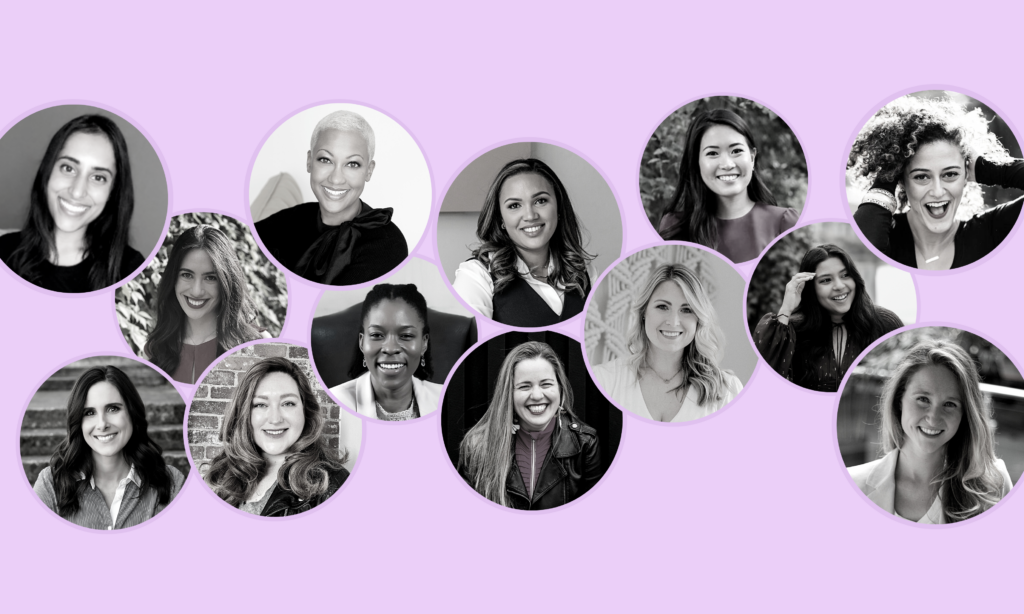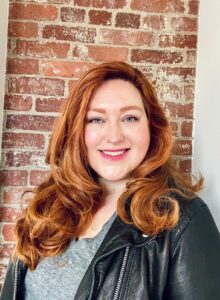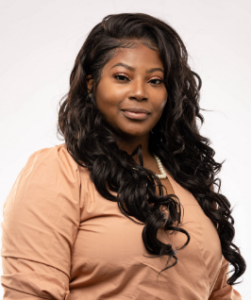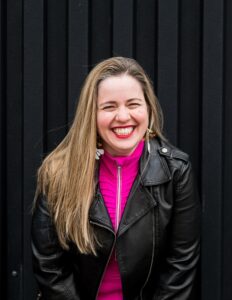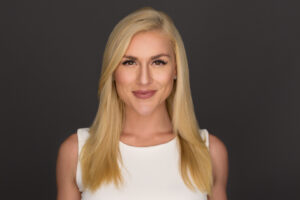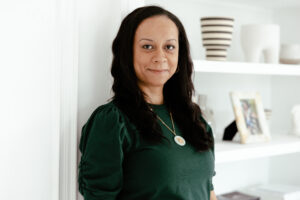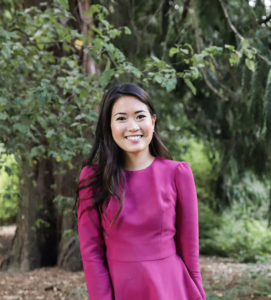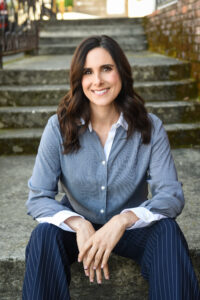24 Successful Women Share Why and How They Quit Their Jobs, and If They’d Do It Again
In 2021, a record-breaking 47 million Americans voluntarily quit their jobs—most of them women.
And while there will always be risk involved in leaving a job, the Great Resignation makes it clear: For many, quitting to pursue opportunities that are more aligned with our passions, priorities, and personal lives is a desire that can only be suppressed for so long. For these 24 successful women, that was certainly the case: They’d quit their jobs again if they had the chance, and many even wish they would have done so sooner.
Whether you are on the brink of putting in your own resignation or testing the waters for what quitting your job might look like, we hope these reflections are an inspiring reminder that anything is possible if you have a plan in place and are committed to making your dreams a reality.
Ashima Sharma
CEO of Dreami, a platform that closes the gap to career development by powering mentorship-driven educational and workforce programs.
My story: I would spend my weeknights and weekends furiously building Dreami, because I was so passionate to see my solution in the world. I had no intentions of making it a company or business. However, the moment when we started getting asked how much our technology costs to license, I realized this could become something. I had a lot of fear of quitting my job at Zendesk, because it was truly perfect—I had the most wonderful manager, team, and growth opportunities. However, I wanted to see what would happen if I were to take a break from corporate and funnel my energy into social impact!
My advice: To the extent that you can, save six to nine months of life expenses, quit when you have some traction/side income to ease potential fear anxiety, surround yourself with others who have taken the leap to get advice, and determine your plan for healthcare if you’re in the U.S.!
Katherine Hill
Performance Specialist and Consultant at Katherine Hill, choreographing for elite figure skaters around the world as well as international film, television, and stage productions.
My story: I was working for Accenture as a management consultant but always knew I wanted to pursue choreography. Due to the physical nature of dance, I felt I had a short window to go for it at the level and quality I wanted. So I jumped! But not without a safety net. I worked hard to be valued at Accenture and was offered a leave of absence. Now, I choreograph full-time for elite athletes, film, television, and stage productions around the world.
My advice: Do the “new” work on the side for a long time before quitting your day job. I was choreographing in the evenings, on weekends, and throughout holiday breaks to hone my skill and build clientele while still working for Accenture. If you are only dreaming and not doing, do not quit yet. Make sure you like the work and have gained confidence in it before pursuing it full time.
Stephanie Alexander
Founder of En Soleil LLC, providing a comfortable, luxurious lounge space where guests can refresh, change clothes, and securely store their bags after work.
My story: I had an amazing job making nearly $200,000 a year, so my quitting story isn’t one of burnout, being underpaid, or being stressed. I simply needed more time to focus on my business. I have always been a very driven and future-focused person, and knew I owed it to myself to give my business 100 percent of my time and energy. I made a plan and a spreadsheet last September entitled “six-month escape plan.” While my goal was to quit at the end of March 2022, I didn’t actually do it until the end of August 2022, mostly because of the uncertainty of not having a full time job, as I have never not worked and a regular paycheck is hard to walk away from. When I finally did resign, however, I was honest with my boss, who was extremely supportive and wished me well. I’m really proud of myself for taking the leap.
My advice: Determine your “why,” make a plan, and work toward it. Don’t get discouraged if things don’t line up exactly how you planned, but the more prepared you are, the better off you’ll be.
Katharine McKee
Founder of Morphology Consulting, a digital commerce consultancy focused on long-term profitable growth via digital systems.
My story: My former boss pulled me aside to tell me that the leadership team had all voted to promote me in my role, except for one, who felt that I made him look bad in meetings when I didn’t let his confidence supersede my expertise. That boss and group offered to train me in how to get this person to like me, so that they would approve the promotion and I could learn how to better politic. While this advice absolutely made sense for that organization, it made me realize how little I valued the brass ring I had collected, and that starting a company where I could focus on what I truly cared about was the much better fit. I gave my resignation a week or so later and it felt like a dark cloud was lifting.
My advice: Take stock of your life first: what do you really need/want, can you afford it now, what are your strengths, and what do you value in yourself that would feel amazing to be paid to do? If that isn’t your current situation, leave when you can.
Nichole Pitts
Founder and CEO of Ethintegrity, a consulting firm empowering forward-thinking organizations and professionals to solve complex ethics and compliance and DEI problems.
My story: I quit my role as Vice President of Compliance and Ethics in 2018. I had the realization that no matter how hard I worked and how innovative I was, I had grown as much as I could in that company. And I had unfortunately allowed myself to root my value in my job title. If I wasn’t being promoted, I thought there was something fundamentally wrong with me. So I decided to reframe this narrative and start my own company using the skills and talent I had honed over the years. I leaned into what I loved and away from what I didn’t. And I’d do it again in a heartbeat. Running my own company hasn’t been easy, but the people I’ve met and the knowledge and confidence I gained have empowered me to grow in ways that weren’t possible in a corporate environment.
My advice: The first thing I did when I decided to quit was to find a therapist to develop some coping skills in case I freaked out once I gave notice. I think it’s normal to question yourself and your decisions because most of us love that sense of stability. But having a toolkit of skills and coping mechanisms to remember your “why” and be proactive about managing the valleys in your journey is critical to helping you focus on enjoying and celebrating your peaks.
Molly Rodau
Founder and CEO of Collectively, a leadership development and change management practice that is transforming the future.
My story: I quit the 9-to-5 grind for two reasons. First, I was spending 50 percent of my time and energy managing politics and conflict that got in the way of creating impact in the world. Second, I was too often being asked to sacrifice my values for money or in service of someone else’s vision. Quitting was terrifying, but would I do it again? Yes, a thousand times over. Running my own business has led to more flexibility, more money, more alignment with my values, and more time for inspiration and creativity than I ever thought was possible.
My advice: Trust yourself. Everyone is going to have an opinion about what is right for you. Your job is to find the signals in the noise and, at the end of the day, listen to and trust yourself.
Ahriana Edwards
Founder and CEO of Vaila Shoes, a modern dress shoe brand for women with extended shoe sizes of 9 to 14.
My story: I worked full time while building my company, Vaila Shoes. As great things were taking off with my company, pressures also rose within my full-time job. I started experiencing a quiet firing vibe from my manager when she noticed how open, successful, and how much of my time was being dedicated to my company versus extracurriculars at the job. With the stressful environment, unnecessary added tasks, and excessive micromanaging, I had no choice but to take a leap of faith. Walking away was the best thing that I could’ve ever done for my business, my mental health, and my founder’s life balance. I would do it all over again in a heartbeat.
My advice: Intentionally save your finances, take small steps to put systems in order to be able to quit, and always look at your job contract in depth to make sure you’re covered when it’s time to spread your wings.
Brooke Taylor
Founder of Brooke Taylor Coaching & Consulting, transforming female leaders through holistic career coaching, strategy consulting, leadership training, and keynote addresses.
My story: While working in corporate, I experienced crippling burnout as a result of trying to fit into an old paradigm of success that required hustle, sacrifice, and conformity. I knew that my true potential could only be realized by redefining what a “successful” career looked like on my own terms. Therefore, it didn’t feel like I was “quitting”—it felt like being pulled toward a greater calling and passion for helping other corporate women to lead and live from their true selves.
My advice: Redefine what success looks like to you from the inside out. Do the work with a coach to reacquaint yourself with your intuition and internal guidance system. Then ask that internal guidance system to direct you toward what you need in order to thrive at work. The answers to that question will lead you toward your calling and passions.
Danielle Letayf
Founder and CEO of Badassery, a marketplace for event organizers to book diverse public speakers in minutes.
My story: I have quit without having a job twice. The first time, I was working at a large tech and media organization and was so burned out that I quit, eat-prayed-loved in Southeast Asia for a few months, then came back to New York City rejuvenated. The second time, I was working as a Head of Community for an awesome mental health app for a few months and decided to bite the bullet on starting my own venture. It felt like the scariest and most irresponsible thing I could’ve done, but I’m so happy I did it.
My advice: Quitting is always a possibility, but make sure you’re being thoughtful about why you’re doing it, and practical about the timing and your post-quitting plan. What are your responsibilities? Why are you quitting? Then after you think hard about it, throw it all in the trash, push past some of your fears and go for it. Continue to ask yourself not only, “What’s the worst that could happen?” but also, “What’s the best that can happen?”
Erin Tarr
CEO of Be the Benchmark, LLC, providing empowerment programming in the form of one-on-one coaching, books, events, and workshops for girls ages 8 to 28.
My story: First I quit a job I was passionate about but had no room for growth in the company to take a job in order to have time to build my business. I worked 9 to 5 in a boring, paper-pushing position that brought me almost no joy, but paid the bills while I dedicated evenings and weekends to my business. After nine years, I was able to build my clientele and reputation to a solid level that led me to confidently walking away from the paycheck and stepping into my future!
My advice: If you are quitting to pursue an entrepreneurial endeavor, meet with a career or life coach first to really plan out what your days, weeks, and months will look like. Get clear on the goals for the first six to 12 months so you can stay focused. Make sure you enroll a person or group for accountability as you start on this new path!
Katie Hawkins
Creative Director at Here For Good Films, a video production company on a mission to tell stories about people doing good and leaving their communities better than they found them.
My story: I was getting burned out, working longer and longer hours, and doing more and more of what I didn’t want to be doing. But after talking to my employers, they told me that I was just too valuable in that role to do anything else. That’s when I realized things weren’t going to change and there was no room for me to grow anymore at the company. So I turned in my two week notice and never looked back.
My advice: There is never a perfect time to quit. Trust your instincts. Don’t wait so long that you burn bridges on your way out. The world is smaller than you think!
Taylor Precourt
Founder of Twelve Tables, an exclusive, multidisciplinary collective of the world’s leading independents and agencies.
My story: I entered the corporate world with enthusiasm and little by little saw my light starting to dim—hiding behind someone else’s shadow knowing in my gut I had more to offer the workforce. I left to become a leader I saw the world needed. I would do it again, but no sooner than I had before. Our biggest failures become our biggest wins.
My advice: Entrepreneurship is not for everyone. It requires a balanced mind, as your responsibilities triple. Be prepared and seek a business strategist to map out your entry into business ownership. If you fail to plan, you plan to fail.
Shanila Sattar
Founder of AlwaysPlay Studios, the go-to for training in the healing arts, supporting practitioners in high-level training, mentorship, and holistic wellness.
My story: Before training breathwork facilitators and mentoring healers in the healing arts, I ran an award-winning digital agency and was in research science. My decision to leave my former careers came from a deep understanding of my alignment to myself—what was the impact I was making and is this the way that felt right?
My advice: Life is short. Have fun with what you do and trust that your intuition is always speaking to you. Of course, make healthy decisions that support your well-being, but think about long term gratification. Are you going to be content keeping the things the way that they are in your current position? Is there something you can change now, which will feel difficult and scarier, but has an amazing payoff?
Patricia Recarte
Co-Founder and CEO of KADO, a mobile-first end-to-end enterprise networking tool for people in large businesses who own a book of clients, like bankers, lawyers, or realtors.
My story: I was living in Barcelona at the time, working for a startup as Head of Expansion. Before that I had worked at other startups and as investment banker and, being very independent, I decided that it was my turn to become my own boss. In March 2020 I spoke to my boss, quit, and started preparing my move to the U.S.. Unfortunately Covid-19 hit, so the start was pretty bumpy. However, I have zero regrets and would do it all over again.
My advice: Once you are clear on your ideas, do it. Otherwise, you start overthinking and always finding an excuse to delay the change. That said, I wish I could have extended my work at my prior firm in the beginning to ensure some salary.
Gabrielle Thomas
Founder of GT Consulting, a direct-to-consumer marketing consultancy for health, wellness, beauty, and pet brands.
My story: I knew it was time for me to move on, but the golden handcuffs kept me locked into a well-paying job and deep inner dissatisfaction. I decided to take a wellness leave for a few months, and as I prepared to go back my mind and body rejected my return. My anxiety escalated and the feeling of wellness became illness. I knew that the price of staying was too high. So I quit. It was one of the most worthy things that I’ve ever done.
My advice: I learned that every time I make a choice for the greater good of my wellness, I grow in happiness and financial advancement. When I make choices rooted in fear I crimp the flow of prosperity. Saying “hell no” makes room for “hell yes!”
Lindsay MacMillan
Author at Penguin Random House, committing to publishing great books and connecting readers and authors globally.
My story: When I was 28, I quit my job as a Vice President at Goldman Sachs to pursue my lifelong dream of being an author. I’d been keeping it as a side hustle while on Wall Street because I wasn’t breaking in yet. Once I landed a literary agent and book deal, and saved enough money, I was able to quit my day job and go all-in as an author. I would 100 percent do it again, and I’m glad I worked on Wall Street for as long as I did during the years before I got my break. My corporate job equipped me with valuable finance and marketing skills, and an incredible network, that have been hugely helpful as I launch my books as an “author-preneur.”
My advice: When taking career jumps, follow both your heart and head. In my experiences, smart career risks are usually not spontaneous. Make a plan. Hustle on the side. Test things out and have a financial and life plan and back-up in case it doesn’t work out. Risks that pay off are rarely spontaneous.
Mariya Leona Illarionova
Community Designer at Mariya Leona, an independent designer transforming brands into movements through storytelling and branding.
My story: I quit two months after landing my dream job. In fact, the CEO of the company personally invited me to lead their creative. I was about to fly out to California for a photoshoot and instead, I put my two weeks in. Though freelancing is considered “riskier,” it grants me freedom and autonomy to operate in a way that honors my personal rhythms and health. Since quitting, I tripled my salary and landed design projects with big names like Nike.
My advice: Be clear on your service offerings and brand positioning. Clarity here helps you confidently pitch and present yourself when chances arise.
Caroline Fabacher
Co-Founder and Chief of Staff at All Hands Craft Cocktails, damn fine, award-winning, ready-to-drink craft cocktails in an “adventure proof” can.
My story: I knew before I finished law school that I would not be a career attorney. I was an entrepreneur in my heart, and I just had yet to identify the right opportunity. I spent several years as a startup attorney, taking inventory of the best ideas, best teams, and best practices of some of the best entrepreneurs in the country, until I identified the right opportunity for me. I approached another entrepreneur and told him that I would quit my job to work on that opportunity. Two weeks later, he and his partner invited me to join them as their third partner. I negotiated my acceptance that evening, and the very next day, I walked into my law firm and gave my notice. I would do it all over again in a heartbeat.
My advice: When you know you’re ready to move on to your own venture, it usually starts in dissatisfaction with or desire for more from one’s current employment. That can translate to restlessness, which can cause you to jump at the first opportunity. Stay patient. You will feel it in your bones when it is time. Make sure you are moving toward a goal, rather than running from where you currently are.
Rossalvi Marte
Founder and Principal at Marte Group, the home for brand and business development for both online and offline businesses.
My story: I already knew that I wanted to quit my job by February 1, 2021. However, things happened faster because my business started to grow more than I expected. Within five months of formally launching my consulting business, I was able to triple my monthly corporate salary. I decided to quit because my heart and mind was in building my company and spending more time with my children. It was a smooth transition since I was already working fewer hours at the company that I worked at and I would totally do it again.
My advice: My main piece of advice is to have a plan. Don’t quit because someone else did it. It is your responsibility to always sell, have savings, and know where you really want to be in the upcoming years. I see many people quitting without having a plan or money saved, and that leads to burnout and discouragement.
Lauren Richardson
Founder and CEO of Radiance & Romance, a line of custom jewelry for conventionality defiers, painted with magical science by manipulating light to create colorful patterns.
My story: A year and a half into what I thought was my dream job, I realized the 9-to-5 world wasn’t for me. The entire office seemed to live for the weekend, myself included. I realized I was only ever going to find misery when my life revolved around waiting for 5 p.m. on Friday. Starting my own business was a desperate act of self-love.
My advice: It’s a risk to start your own business. But what about the risk of not pursuing your dreams or not finding happiness? When people think of quitting their job, they only think about the financial aspect. Sure it’s terrifying to not get a regular paycheck, but what does staying in that job do to your mental health?
Yewande Faloyin
Founder and CEO of OTITỌ Executive Leadership Coaching, showing high-achievers and entrepreneurial leaders how to confidently accelerate into more impactful leadership positions.
My story: As much as I loved my experience and time at McKinsey, I realized that I wasn’t fully fulfilled or satisfied in my life overall doing what I was doing, the path laid out at McKinsey didn’t align with where I wanted to go, and I wasn’t realizing my full potential. That was enough to get me to do the craziest thing I had ever done and quit my job having no idea what I’d do next. Crazy, yes, but also arguably the easiest decision I’ve ever made. I was drawn by a desire to find my ikigai, my reason for being, and make that a core part of my professional life. Because I was clear about what I wanted, it was much easier than I thought. I would 100 percent do it again!
My advice: Invest strategically in finding the right career path. If you are serious, show it, prioritize it, and do the work by investing your time, resources, and energy in the thing that you want.
Nics Asawasudsakorn
Founder of Nics Design Studio, a web design and development studio for female-founded e-commerce businesses in the lifestyle, fashion, and beauty industry.
My story: I was a full-time Product Manager at Amazon and had been with the company for nearly five years. During that time, I started a fashion brand side hustle and through that discovered my passion for e-commerce web design. I decided to completely pivot my business to focus on providing services to other brands and quit my job at Amazon without any clients lined up at that time. The leap was scary but definitely worth it to focus all my energy in kick-starting this business.
My advice: Have a clear three month plan of what you plan to get done right after you quit your job. Maintaining my regular work schedule and setting key milestones for what I wanted to accomplish kept me focused and less distracted by insecurities that might have come up at that time.
Brittany Busse, MD
President and Chief Medical Officer at ViTel Health, the one-stop platform to empower independent physicians into private practice.
My story: In order to fully pursue my dream of empowering other physicians to embrace independent practice models, I first had to quit my own employed clinical position. After having my son, I knew that I would not be able to return to my previous role. I emailed my team and let them know that I would not be returning from maternity leave. Although we are still working to close seed funding so we can give ourselves and our team stable pay and benefits, I would 100 percent quit again. Working for someone else as a physician in the current medical system is the quickest way to burnout, and I need to be practicing what I preach.
My advice: Make a plan. You don’t have to quit today but you can take one small step to leave the toxic environment you have found yourself in. You can start setting healthy boundaries, talk openly about your interest in other jobs/careers, and, above all else, start your “F-U fund” so you can walk away financially secure enough to have some time to find the right new position.
Jessica Alderson
Co-Founder and CEO of So Syncd, a dating app that matches compatible personality types.
My story: I quit my job to start So Syncd because it was becoming too much and we were close to closing a funding round. This meant that starting our own tech company was finally feasible from a financial perspective. I was fortunate in that my boss was exceptionally understanding and supportive. I told him how much I loved the company and my co-workers, which he appreciated. I would do it again.
My advice: Before fully quitting, I reduced the number of days I worked so I had a transition period while we were closing our funding round. This was beneficial in a lot of ways. It meant that I still had some income which took some of the pressure off from a financial perspective. It was also beneficial for the company I previously worked for because the handover period during which I trained my replacement was more thorough. If it fits your plans, I would suggest reducing working days or hours as a stepping stone. It could be a win-win situation.
All individuals featured in this article are members of Dreamers & Doers, an award-winning community and diverse ecosystem amplifying extraordinary entrepreneurial women through PR opportunities, authentic connection, and high-impact resources. Learn more about Dreamers & Doers and subscribe to its monthly The Digest for top entrepreneurial and career resources.

